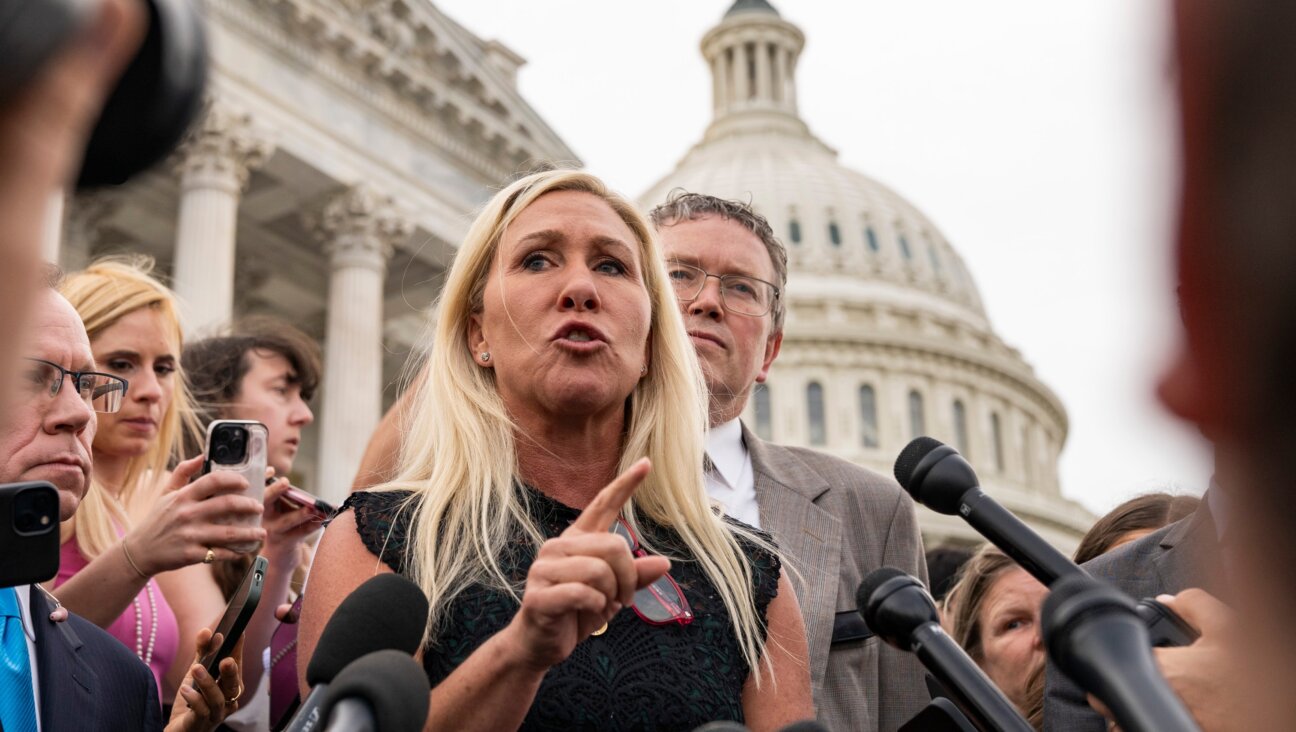Roberto Saviano, Scourge of the Mafia and Reader of I. B. Singer

Image by wiki commons
To paraphrase Samuel Johnson, when a man knows he is to die shortly, “it concentrates his mind wonderfully.”

Image by wiki commons
The young Italian Jewish journalist Roberto Saviano, under threat of imminent death from angered mafiosi after his 2006 “Gomorrah: A Personal Journey into the Violent International Empire of Naples’ Organized Crime System”, has decided to concentrate on Isaac Bashevis Singer.
Such, at least, is the conclusion to be drawn from “The Demon and Life,” a 2005 essay newly translated in Saviano’s “Beauty and the Inferno,” a collection of articles out in May from Maclehose Press.
Naples-born Saviano, whose Jewish mother Miriam Haftar hails from the Ligurian region of north-western Italy, is firmly attached to all of his roots, raising hackles in Italy by his support of the state of Israel. In October 2010, Saviano sent a video message which was viewed at the politician Fiamma Nirenstein’s event in Rome “For the Truth, for Israel,” arguing against the “de-legitimization of Israel” and reminiscing about how when he was a boy, his maternal grandfather would speak to him about Jerusalem. Saviano seems to see Singer as a mystical-magical grandfather figure, asserting that Singer “seemed in his later years to have become less of a prophet and more like one of his benevolent and terrible demons, with pointed ears, a Mephistophelean smile, bald pate and sharp, beady eyes.” Saviano specifically praises Singer’s prose as:
[a] florilegium of images and stories transformed from the Hebrew tradition. The Torah and Zohar, for him, were not just holy texts and religious references but symbolic labyrinths he used to interpret the trials of daily life.
Saviano became fascinated by Singer shortly before his own daily trials included being forced to live as a fugitive with a constant police guard, following threats by Neapolitan mafia kingpins. If Saviano’s enemies are powerful, his admiring defenders are no less significant. The acknowledgments section of “Beauty and the Inferno” includes thanks to Elie Wiesel for being “among the first to sign a petition” expressing “solidarity with my situation,” as well as Rita Levi Montalcini, the 102-year-old Nobel-Prizewinning Italian Jewish neurologist, who intervened on Saviano’s behalf with Italy’s government “when things got tough for me,” and Shimon Peres, “who offered me refuge in Israel.”
Saviano’s appreciation of Singer suggests that he agrees with Elie Wiesel and Primo Levi, whom he lauds in another essay for being able to forgive humanity for their sufferings, even if they may not have forgiven their main persecutors.
Watch Saviano speaking on his Jewish roots in 2010.
The Forward is free to read, but it isn’t free to produce

I hope you appreciated this article. Before you go, I’d like to ask you to please support the Forward.
Now more than ever, American Jews need independent news they can trust, with reporting driven by truth, not ideology. We serve you, not any ideological agenda.
At a time when other newsrooms are closing or cutting back, the Forward has removed its paywall and invested additional resources to report on the ground from Israel and around the U.S. on the impact of the war, rising antisemitism and polarized discourse.
This is a great time to support independent Jewish journalism you rely on. Make a gift today!
— Rachel Fishman Feddersen, Publisher and CEO
Support our mission to tell the Jewish story fully and fairly.
Most Popular
- 1

News School Israel trip turns ‘terrifying’ for LA students attacked by Israeli teens
- 2

Culture Cardinals are Catholic, not Jewish — so why do they all wear yarmulkes?
- 3

Fast Forward Why the Antisemitism Awareness Act now has a religious liberty clause to protect ‘Jews killed Jesus’ statements
- 4

Fast Forward Ye debuts ‘Heil Hitler’ music video that includes a sample of a Hitler speech
In Case You Missed It
-

Yiddish קאָנצערט לכּבֿוד דעם ייִדישן שרײַבער און רעדאַקטאָר באָריס סאַנדלערConcert honoring Yiddish writer and editor Boris Sandler
דער בעל־שׂימחה האָט יאָרן לאַנג געדינט ווי דער רעדאַקטאָר פֿונעם ייִדישן פֿאָרווערטס.
-

Fast Forward Trump’s new pick for surgeon general blames the Nazis for pesticides on our food
-

Fast Forward Jewish feud over Trump escalates with open letter in The New York Times
-

Fast Forward First American pope, Leo XIV, studied under a leader in Jewish-Catholic relations
-
Shop the Forward Store
100% of profits support our journalism
Republish This Story
Please read before republishing
We’re happy to make this story available to republish for free, unless it originated with JTA, Haaretz or another publication (as indicated on the article) and as long as you follow our guidelines.
You must comply with the following:
- Credit the Forward
- Retain our pixel
- Preserve our canonical link in Google search
- Add a noindex tag in Google search
See our full guidelines for more information, and this guide for detail about canonical URLs.
To republish, copy the HTML by clicking on the yellow button to the right; it includes our tracking pixel, all paragraph styles and hyperlinks, the author byline and credit to the Forward. It does not include images; to avoid copyright violations, you must add them manually, following our guidelines. Please email us at [email protected], subject line “republish,” with any questions or to let us know what stories you’re picking up.
















